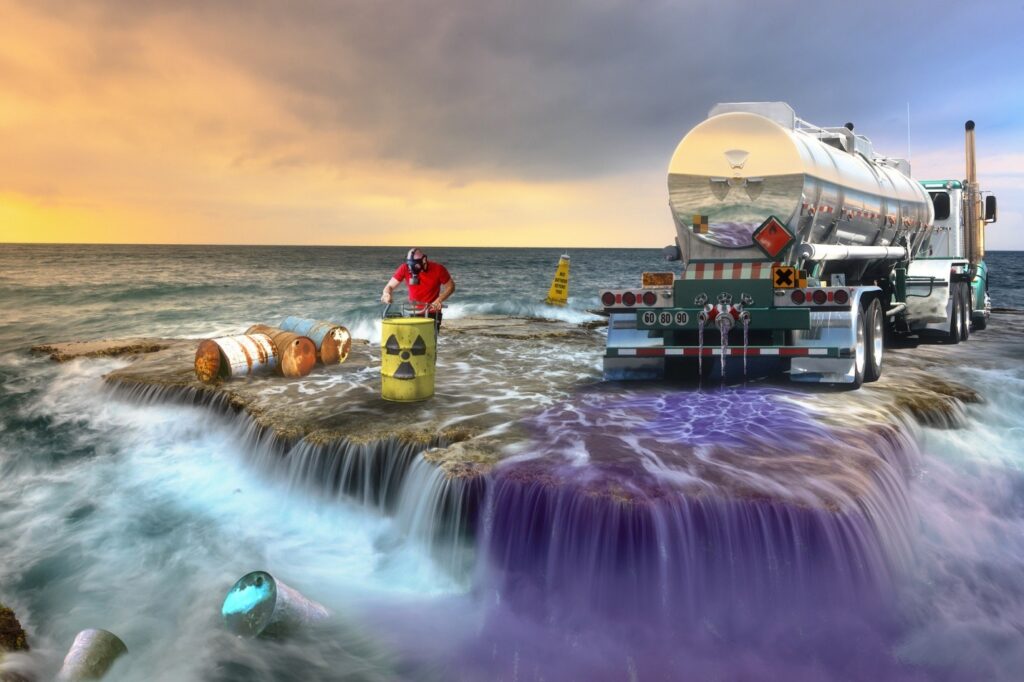The Buzz on Reclaim Waste
The Buzz on Reclaim Waste
Blog Article
Some Of Reclaim Waste
Table of ContentsThe Best Guide To Reclaim WasteA Biased View of Reclaim Waste9 Simple Techniques For Reclaim WasteThe 10-Minute Rule for Reclaim WasteNot known Incorrect Statements About Reclaim Waste
Discover the kinds, incidents, and types of liquid waste. Domestic sewer waste refers to the waste and products from a domestic septic tank. This sort of waste is created by human beings in homes, colleges, and various other structures. This only includes septic containers that have a drainpipe area. The correct monitoring and disposal of residential sewage waste need fluid waste to be moved to a sewage therapy plant where the appropriate approaches and devices are put on cleanse and throw away waste.
Industrial waste usually consists of prospective threats, such as flammable products or a combination of liquid and strong waste products, and calls for a more innovative and thorough disposal process. The disposal of industrial waste typically involves the purification of waste before transport to make sure safe and proper disposal. Hazardous waste is produced from byproducts and runoff of industrial procedures and production.
This kind of waste can not use the very same sewage monitoring transportation or processes as septic or industrial liquids. The hazardous waste monitoring procedure requires the evaluation and testing of fluid waste prior to it undergoes the disposal process (liquid waste removal). Drainage waste is the liquid waste that originates from runoff and excess stormwater in very booming locations or cities
Overflow waste can cause contamination and flooding if not dealt with properly. Making sure proper waste monitoring can prevent calamities and decrease ecological injury.
8 Easy Facts About Reclaim Waste Explained
Contact PROS Solutions today to learn more about our waste monitoring and disposal services and the proper ways to look after the fluid waste you produce.
(https://disqus.com/by/reclaimwaste1/about/)Do you know what occurs to your water when you pull the plug, purge the bathroom or drain pipes the washing device? No? Well, it's worth knowing. This supposed 'wastewater' is not only an important source but, after treatment, will be released to our land, waterways or the ocean. Used water from toilets, showers, baths, cooking area sinks, washings and industrial procedures is known as wastewater.

water utilized to cool machinery or clean plant and devices). Stormwater, a type of wastewater, is overflow that streams from agricultural and city locations such as roofing systems, parks, gardens, roadways, paths and seamless gutters right into stormwater drains, after rain. Stormwater streams neglected directly to neighborhood creeks or rivers, eventually reaching the sea.
Some Of Reclaim Waste
In Queensland, the majority of wastewater is dealt with at sewer therapy plants. Wastewater is delivered from domestic or commercial sites via a system of drains and pump stations, referred to as sewage reticulation, to our website a sewage treatment plant. City governments construct, preserve and operate most sewage treatment plants. Operators are certified under the Environmental Defense Act 1994 to discharge cured wastewater at an acceptable ecological requirement into rivers.
The Division of Natural Resources recommends local governments concerning managing, operating and maintaining sewage systems and therapy plants. In unsewered areas, neighborhood federal governments may call for homeowners to set up specific or family sewer treatment systems to treat domestic wastewater from toilets, cooking areas, bathrooms and laundries. The Department of Natural Resources authorizes making use of house systems when they are verified to be effective.
The majority of stormwater receives no therapy. In some brand-new neighborhoods, treatment of some stormwater to eliminate litter, sand and gravel has actually started utilizing gross toxin catches. Wastewater therapy takes place in four phases: Eliminates strong matter. Bigger solids, such as plastics and various other objects wrongly discharged to sewage systems, are eliminated when wastewater is travelled through screens.
Makes use of small living organisms recognizes as micro-organisms to damage down and get rid of continuing to be liquified wastes and great bits. Micro-organisms and wastes are integrated in the sludge.
The smart Trick of Reclaim Waste That Nobody is Talking About
Nutrient removal is not readily available at all sewage treatment plants since it requires expensive specialist devices. Clear liquid effluent generated after treatment might still contain disease-causing micro-organisms - liquid waste disposal melbourne.

Most wastewater moves into the sewage system. Under the Act, neighborhood governments provide approvals and licences for eco relevant tasks (Periods) entailing wastewater launches that may have a neighborhood effect.
The Best Guide To Reclaim Waste
Or else, samples are taken for lab evaluation. Typically several examinations are required to develop the levels of each of the various contaminants such as oils, heavy metals and chemicals in water. Tracking gives accurate info regarding water top quality and can verify that licence problems are being satisfied. The details acquired via surveillance gives the basis for making water high quality decisions.
Report this page